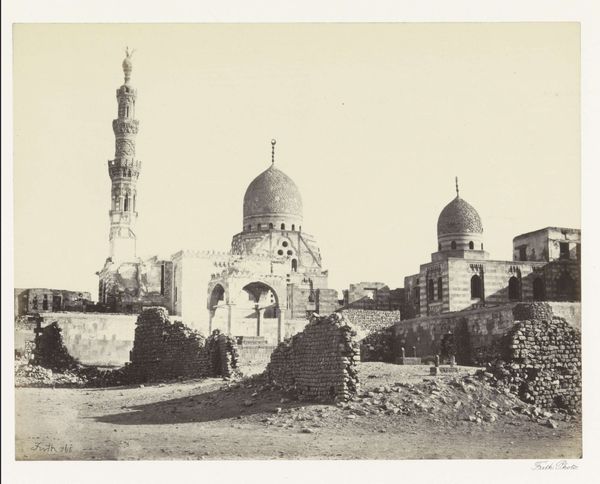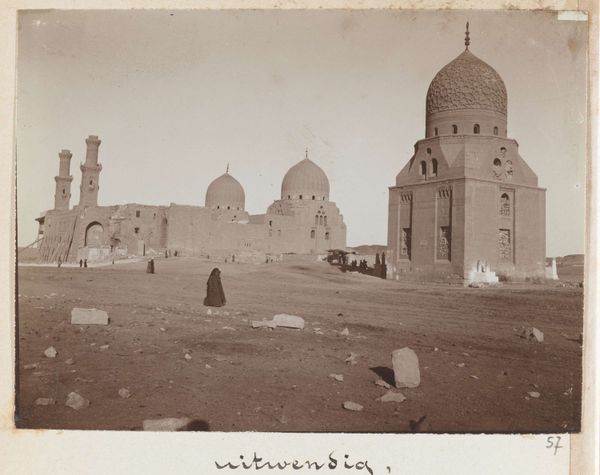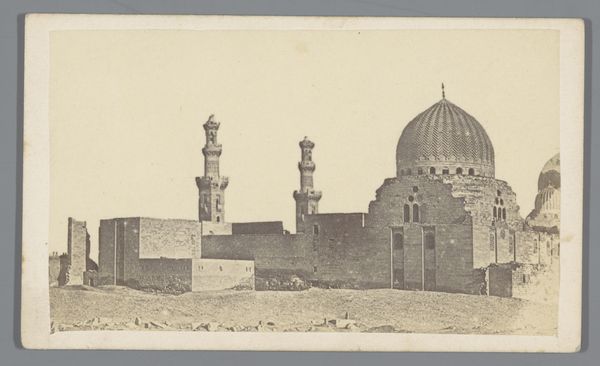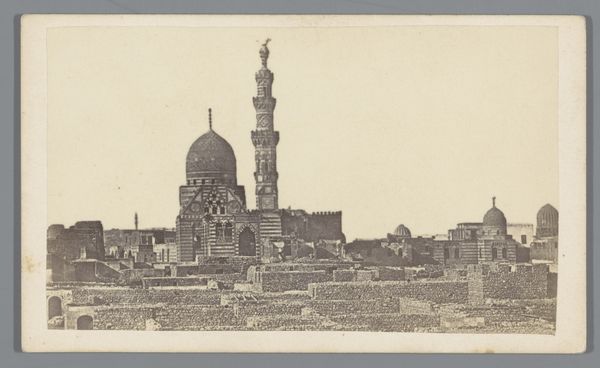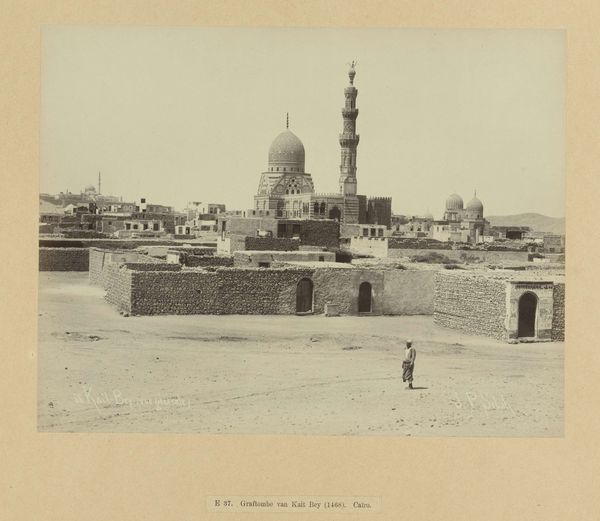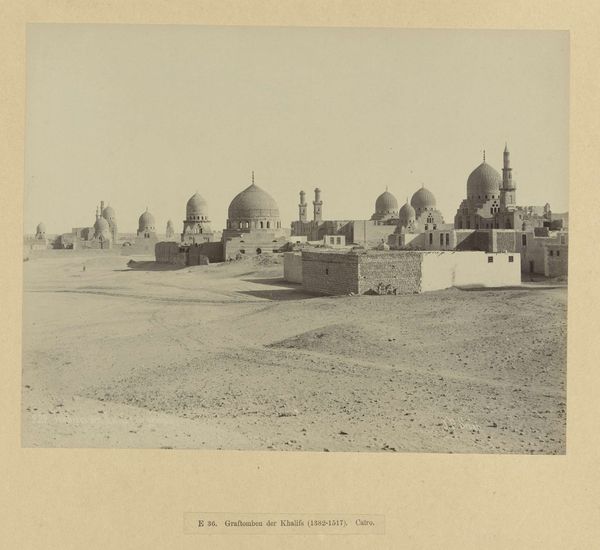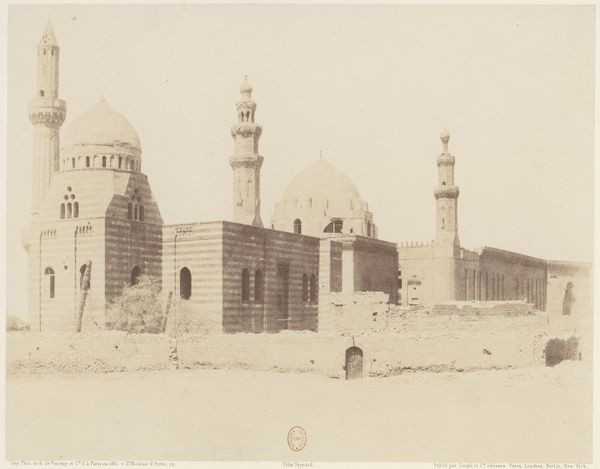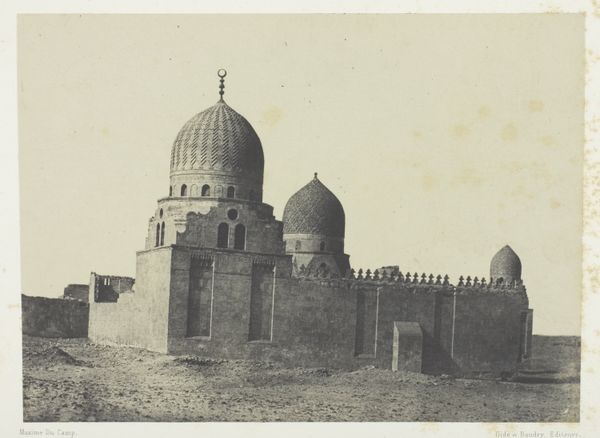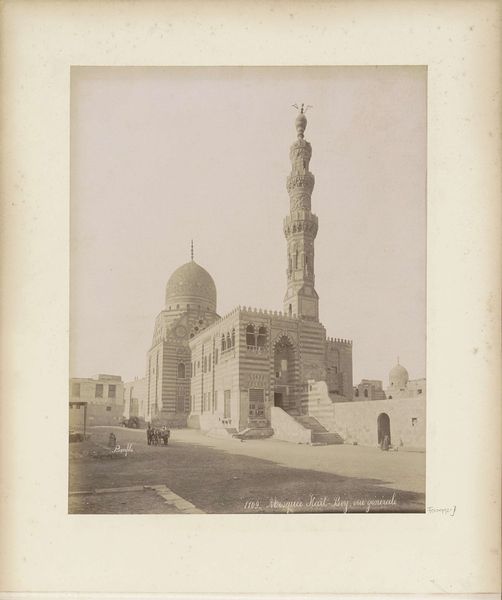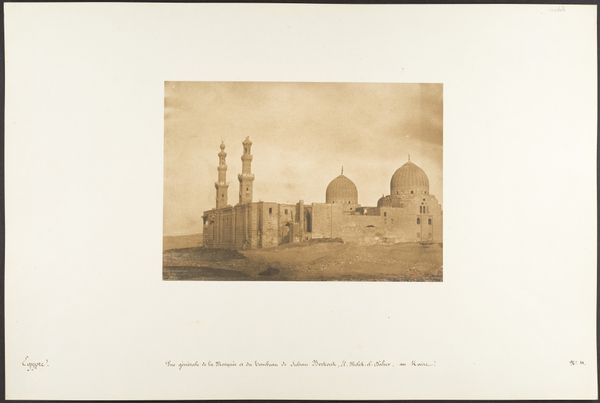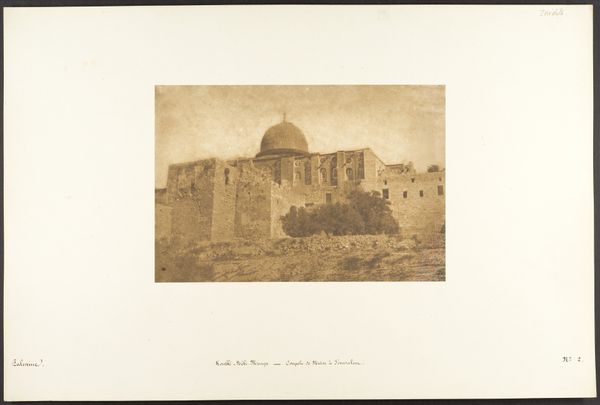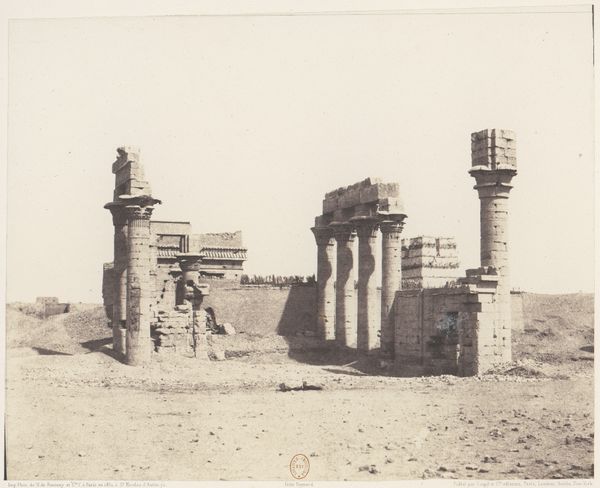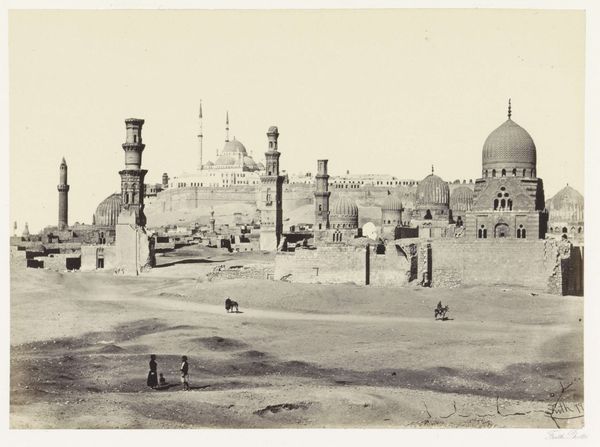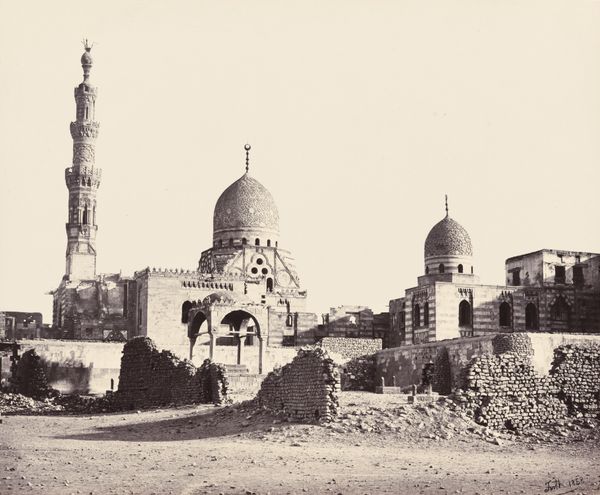
Mosquée et Tombeau des Ayoubites, Le Kaire Possibly 1849 - 1852
0:00
0:00
print, paper, photography
#
16_19th-century
# print
#
landscape
#
ancient-egyptian-art
#
paper
#
photography
#
egypt
#
france
#
cityscape
#
islamic-art
Dimensions: 15.1 × 21.4 cm (image/paper); 30 × 42.8 cm (album page)
Copyright: Public Domain
This photograph of the Mosque and Tomb of the Ayyubids in Cairo was made by Maxime Du Camp, a French writer and photographer, in the mid-19th century. The image, rendered in tones of gray, captures the monumentality of the mosque against the stark, expansive landscape. Du Camp was commissioned to document Egypt and other parts of the Middle East, at a time when these regions were of great interest to European audiences. The photograph's composition, with its emphasis on the architectural grandeur and its location on a rise in the landscape, reflects the colonial gaze. These images contributed to the construction of a romanticized, often Orientalist, view of Egypt. To fully understand this photograph, we need to look at its historical context. Researching the colonial history of photography and the role of institutions can reveal the power dynamics at play in the creation and interpretation of such images. The meaning of this photograph is thus not fixed, but contingent on our understanding of the social and institutional forces that shaped its production.
Comments
No comments
Be the first to comment and join the conversation on the ultimate creative platform.
